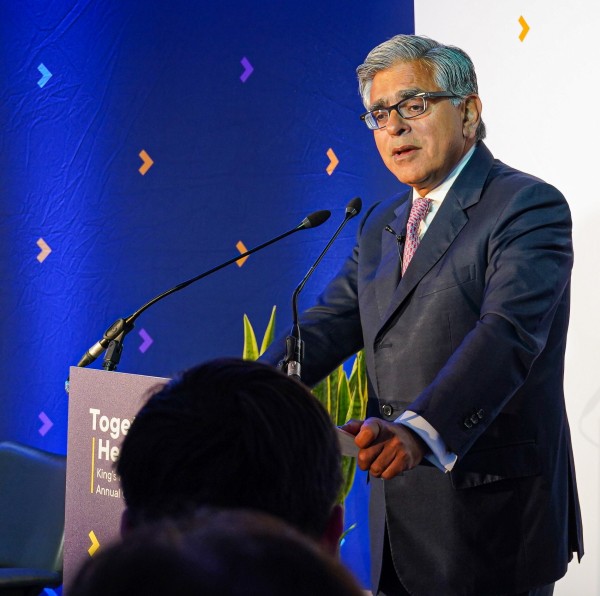King’s Health Partners supports clinical academic integration through Clinical Academic Groups and Partnerships organised by clinical specialty, as well as through cross-cutting initiatives.
Clinical Academic Groups and Partnerships
These groups use their combined expertise to achieve better outcomes for patients and service users by integrating excellence in research, education and training, and care delivery.
Strategic support is provided by programme staff through King’s Health Partners’ governance structures. This includes supporting the development of the clinical-academic leadership pipeline. Examples of support include a yearly programme of leaders meetings, project management support and listening exercises. There is also central support available for hosting events, developing and delivering education programmes and carrying out analysis of research performance using a range of metrics to compare outputs.
A variety of initiatives bring together a wider array of individuals, including across the groupings and partnerships to develop translational and applied research, enable service innovation, and deliver excellence in education. Examples include cross-specialty programmes in Mind & Body, Academic Surgery, and the Rare Disease Network.
Together, these different models form the building blocks of our Academic Health Sciences Centre, uniting our clinical and academic staff across disciplines, professional groups, and partners to fulfil our tripartite mission of excellence in care, innovative education and cutting edge research.
Examples of education activities that exemplify clinical academic integration at King's Health partners include:
- Members teaching and involved in curriculum development on a range of courses offered at undergraduate and masters levels, as well as supporting doctoral and post doctoral education within the health faculties at King’s College London.
- Support for system education including through King Health Partners’ Academic Surgical Grand Rounds and Primary Care webinar series.
- Learning opportunities and resources, including accredited modules and continuous professional development (CPD). Many can be freely accessed via the King’s Health Partners Learning Hub.
- Provision of a fellowship programme in surgical leadership offering a flexible course structure to suit full-time clinicians.
Aligning research activity to service pressures and priorities is fundamental to clinical academic integration, ensuring that King’s Health Partners benefits the local population.
Clinical academic integration has played a crucial role in successful bids to host or co-host national research facilities including, Centre for Neurodevelopmental Disorders, a UK Dementia Research Institute, founding partner in the Francis Crick Institute (biomedicine) and a cancer medicine centre.
Through the provision of community and secondary care to the population of south east London, and through tertiary and specialised services for patient groups across the country, the partnership supports 15 million patients per year.
The inclusion of clinical leaders alongside academic experts is crucial to our model. We aim to bring academic rigor to service improvement activities (for example through our Ask the Institute offer) while ensuring that all clinical practice is evidence-based and influenced by latest innovations in care excellence.
The impact of our clinical academic groupings and clinical academic partnerships is reported in our annual impact report.
King’s Health Partners was the first UK centre to develop Clinical Academic Groups and has supported other organisations internationally to develop clinical academic integration models. There is now a varied ecosystem of international models and we are working with seven of the leading centres to analyse and better understand the benefits of different models of clinical academic integration.







